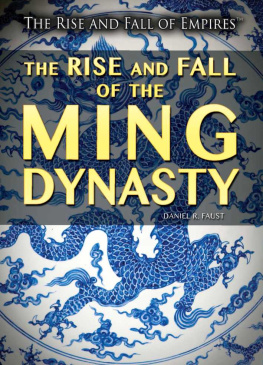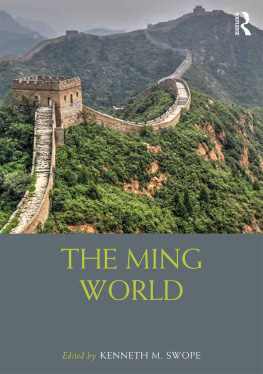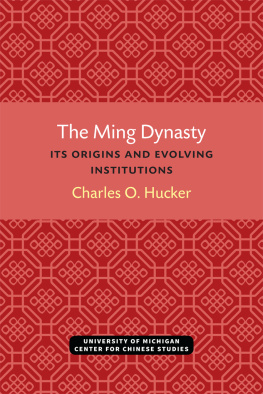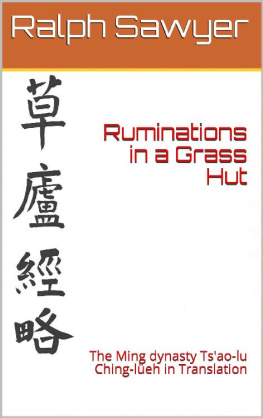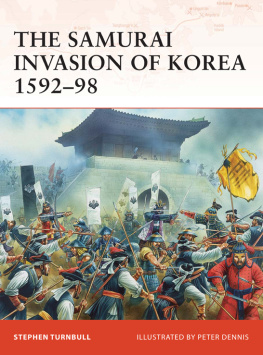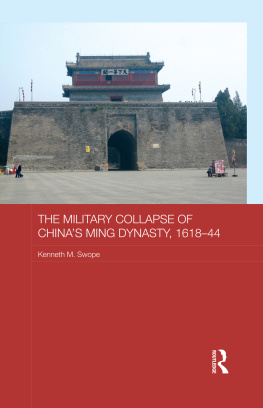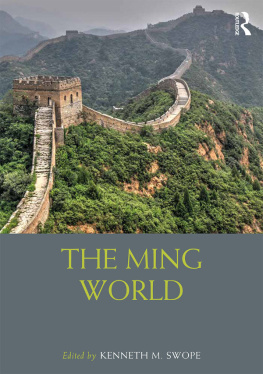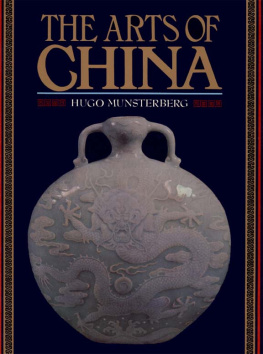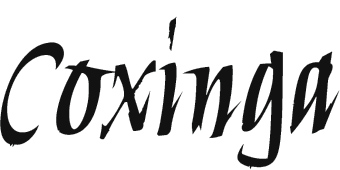AND THE F ALL OF THE
M ING D YNASTY
JONATHAN CLEMENTS
For my parents
This book was first published under the title
Pirate King: Coxinga and the Fall of the Ming Dynasty
First published in 2005
The History Press
The Mill, Brimscombe Port
Stroud, Gloucestershire, GL 5 2 QG
www.thehistorypress.co.uk
This ebook edition first published in 2011
All rights reserved
Muramasa Industries Limited, 2004, 2011
This ebook is copyright material and must not be copied, reproduced, transferred, distributed, leased, licensed or publicly performed or used in any way except as specifically permitted in writing by the publishers, as allowed under the terms and conditions under which it was purchased or as strictly permitted by applicable copyright law. Any unauthorised distribution or use of this text may be a direct infringement of the authors and publishers rights, and those responsible may be liable in law accordingly.
Jonathan Clements has asserted the moral right to be identified as the author of this work.
EPUB ISBN 9780752473826
MOBI ISBN 9780752473819
Original typesetting by The History Press
C ONTENTS
The lives of few men in history are richer in dramatic possibilities than was Coxingas. It is small wonder, then, that even those who have professed to be writing biographical accounts have been led into colourful tales which have every merit save that of truth.
Donald Keene
For a thousand autumns, men will tell of this.
Zhang Huang-yan
A CKNOWLEDGEMENTS
T his book first took shape in 1991, when I found Coxingas story in Lynn Struves Southern Ming. My interest was encouraged by George Hlawatsch at the Kansai University of Foreign Studies, and then endured with very little eye-rolling by Ellis Tinios, whose retirement from the University of Leeds deprived that institution of a great authority on both Chinese history and Japanese erotica. Turning my obsession into a book took many years of research, chiefly at the library of Londons School of Oriental and African Studies, whose staff were ever helpful. The Hanshan Tang bookstore kept me supplied with material when even the resources of SOAS failed.
The concept was championed and sold by my agent, Chelsey Fox of Fox and Howard. Though she infamously feels neither pity nor remorse, she still bought me lunch because she feared I was not eating properly. Towards the end of this books genesis, she also kindly dropped a Le Creuset casserole lid on her foot and broke two toes, to ensure that she had plenty of time to read the manuscript in bed. Jaqueline Mitchell of Sutton Publishing demonstrated wholly unscrupulous and piratic behaviour at the London Book Fair, kidnapping my proposal and holding it hostage to prevent my agent showing it to anyone else. Such behaviour demonstrated a faith in the books potential that she maintained throughout its long gestation.
Others have patiently put up with my many excited calls about new discoveries, and offered much advice, encouragement or help of their own, including Donna Anstey, Polly Armstrong, Lee Brimmicombe-Wood, Rebecca Cape, Hugh David, Sue Dickinson, Erika Dowell, Jane Entrican, Rhonda Eudaly, Ian Everard, Kimberly Guerre, David Hughes, Clare Jackson, Simon Jowett, Macabe Keliher, Kathryn Kerns, Ruby Lee, Lee Shu-hui, Tom Mes, Paul Overmaat, Kate Pankhurst, Louis Savy, Wei Te-wen, and all at Sutton. Andrew Deacon not only made helpful comments on the manuscript, but also provided much-needed Chinese translation assistance. Motoko Tamamuro translated vital Japanese sources about the Nanjing campaign when time became tight. John Freeman pointed me at Stefan Landsbergers website, and Landsberger himself tracked down the propaganda print of Coxinga found in this book. I owe my thanks to all of the above, and also to my personal warrior princess, Kati Mki-Kuutti, who was not around for the books beginning, but was the first to hear its end.
My grateful acknowledgement goes to Brill Academic Publishers for permission to quote from Leonard Blusss articles in Vermeers Decline and Development of Fukien Province in the 17th and 18th Centuries, and Leyden Studies in Sinology; to Cambridge University Press for permission to quote passages from Donald Keenes Battles of Coxinga; and to the Regents of the University of California Press for permission to quote from Frederic Wakemans The Great Enterprise: The Manchu Reconstruction of Imperial Order in Seventeenth-Century China.
PROLOGUE
1644: B RIGHTNESS F ALLS
O n 8 February 1644, the first day of the Chinese New Year, the ministers of the Emperor of Lofty Omens woke before dawn and journeyed through the streets of Beijing. At the break of day, in keeping with tradition that stretched back for centuries, they would greet their 33-year-old ruler, whom the gods had selected to reign over the entire world. Then, the assembled throng would welcome in the new year, the 4341st since Chinas first, legendary kings, and entreat the gods and ancestors to bring them good fortune.
The city, however, was quiet. Many of its inhabitants had succumbed to a harsh outbreak of disease the previous year, and according to one diarist, no babies had been born in the city for the previous six months.1 Not all the ministers arrived at the palace on time. Those that did found the gates jammed shut, and were only able to open them with some difficulty. Eventually they found the Emperor of Lofty Omens, in the Hall of the Central Ultimate. He was weeping.2
China was doomed. The Dynasty of Brightness, the Ming, which had ruled the worlds largest nation for centuries, had lost its hold on power. A Confucian scholar would have been scandalised at the low attendance that morning; without a full complement of ministers, how could they perform the necessary ceremonies? But not even the Emperor himself bore a grudge against the absentees, or those who arrived late, wheezing breathless apologies. No amount of prayers and ceremony would change the inevitable, and no sacrifice, however elaborate, would attract the ancestors attention from the afterlife.
Besides, the Emperor could not afford it. Ever since the disastrous reign of his father, the nations budgets had spiralled wildly out of control. Attempts to curtail imperial luxuries were not enough, fundamental cornerstones of civilisation had gone to ruin. The Grand Canal to the south was falling into disrepair, and the postal system had been shut down. Smallpox had wrought havoc among the farming communities, who struggled in vain to tease crops from the earth though few realised at the time, the middle of the seventeenth century gripped the world in a mini ice age. The same weather conditions that were then freezing over the Thames in London were also bringing deadly cold to the lands north of the Great Wall.
The unit of currency in seventeenth-century China was the tael, an ounce of silver. It took 400,000 taels each month to maintain and supply the troops who defended the northern border. The Finance Minister already knew that the money would run out before March. After that point, there would be little incentive for the soldiers who guarded the Great Wall to stay at their posts. The ministers expected the worst.
North of the Great Wall was Chinas worst nightmare the barbarian warriors of Manchuria had become increasingly bold in recent years. They had stolen former Ming territory from the Chinese, and even proclaimed that they were now the rightful rulers of China. Though they were nominally led by a child, the true power behind the throne was Prince Dorgon, a 32-year-old warrior who believed he could conquer the Celestial Empire in a matter of months. The Great Wall would hold the Manchus for a while, but once the money ran out, there was not much hope. Chinas greatest general, Wu Sangui, held the crucial Shanhai pass where the Great Wall met the sea... if he could keep his mens hearts on defending the Wall, then China might be able to hold out for a miracle.







